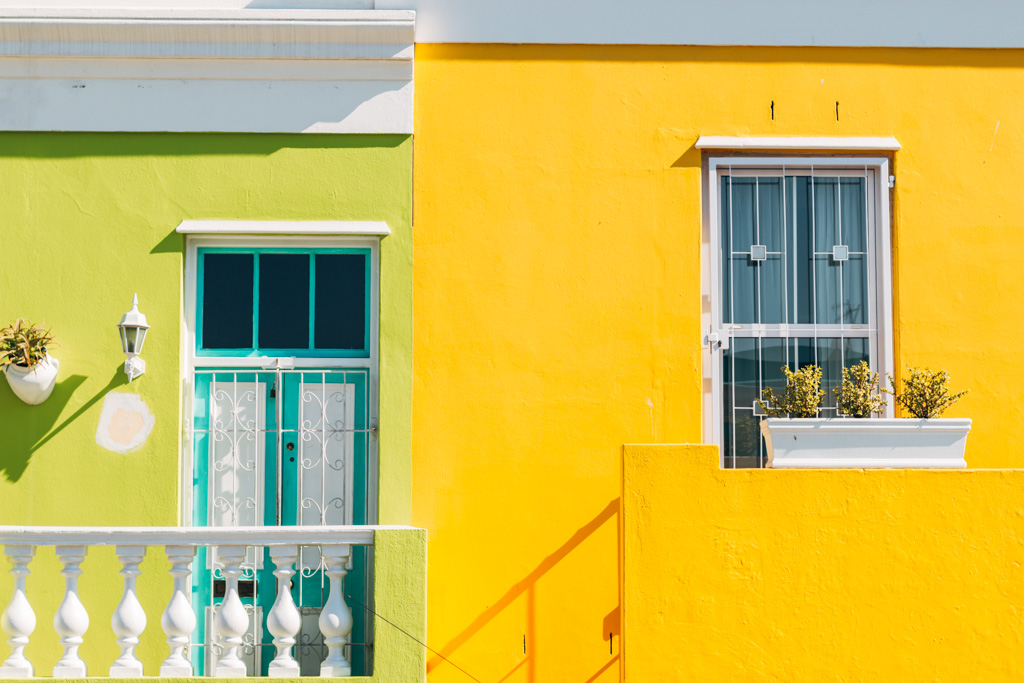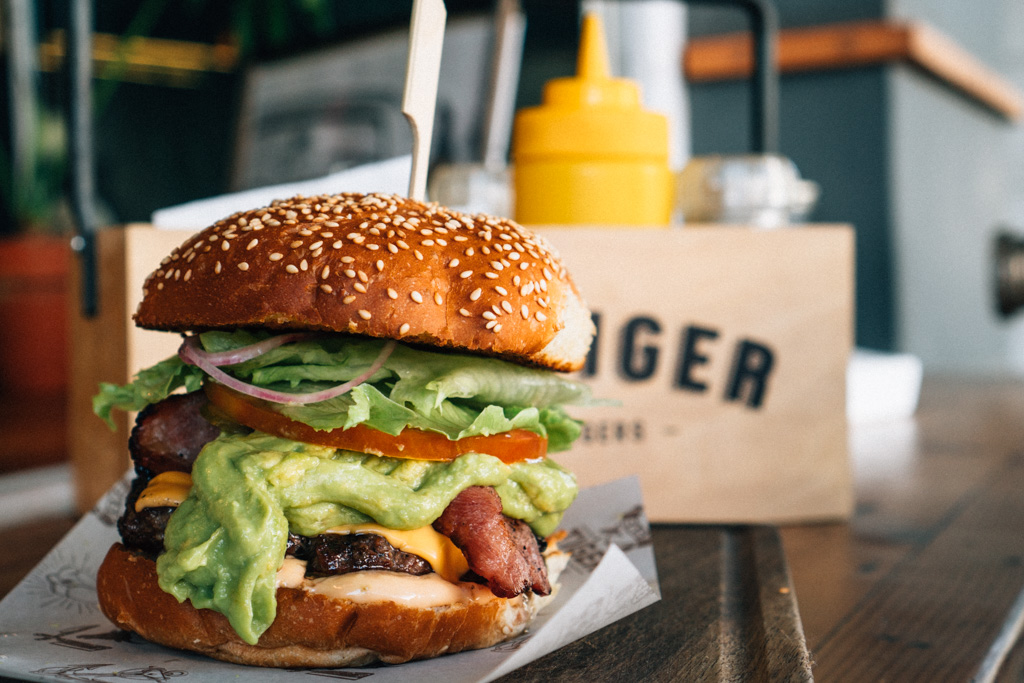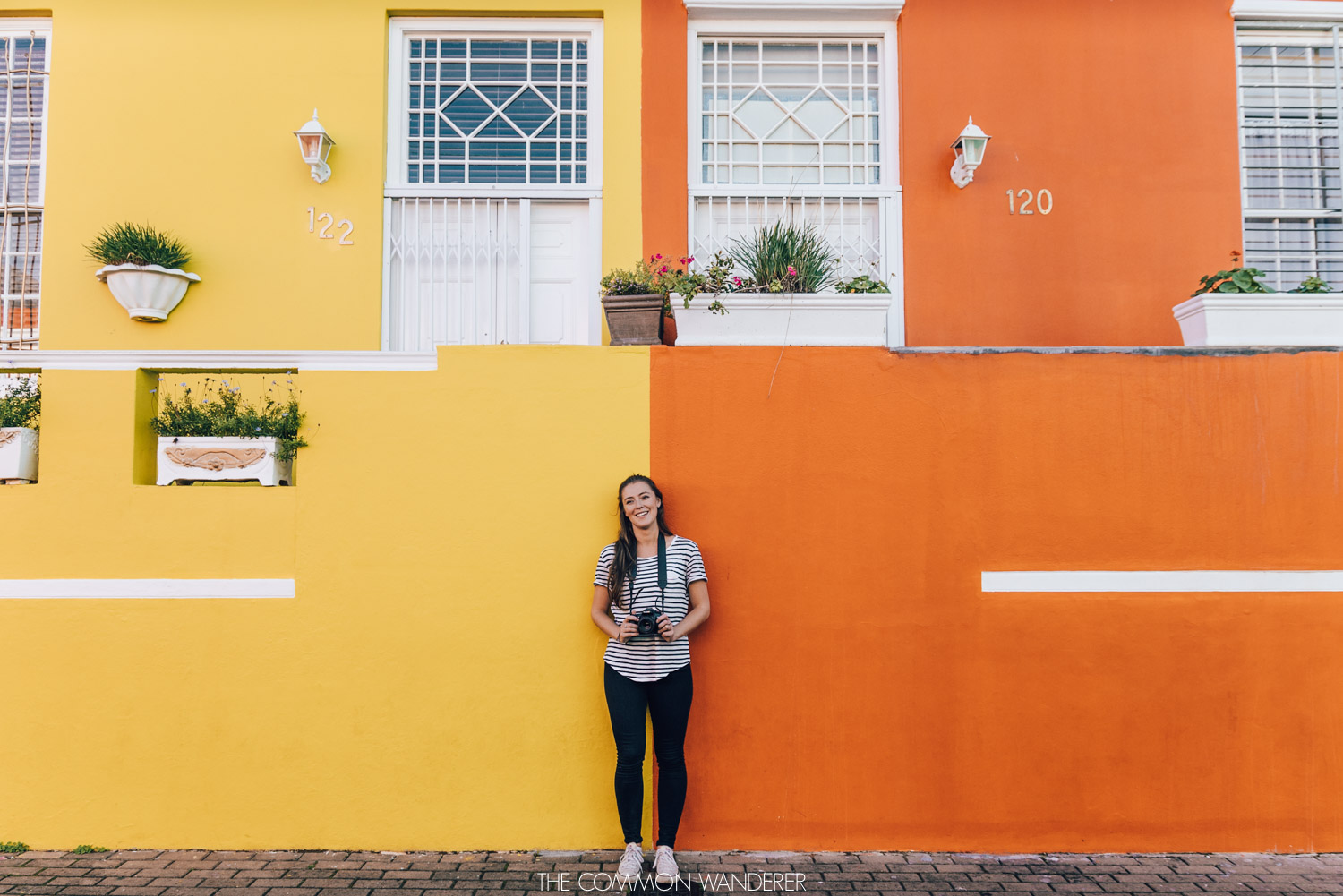Our Ultimate Guide to Cape Town, South Africa
Our Cape Town guide will provide you with all you need to know to enjoy a perfect visit to the Mother City, including our recommendations for things to do, where to stay, where to eat, and other hints and tips.
We're Cape Town's biggest advocates.
Why?
In one day you can swim in the Indian ocean and surf in the Atlantic ocean, hike to the Table Mountain summit, sip wine in the Cape Winelands, visit Mandela’s Robben Island cell, explore the diverse and colourful inner city suburbs, including colourful Bo Kaap, and still have time to watch the sunset before tucking into world class cuisine.
The city also ranks as one of the most multicultural in the world; Christian, Muslim, Jewish, Hindu and traditional African beliefs coexist peacefully, and it’s a place where each friendly local you meet has an interesting tale to tell.
After spending six weeks living under its seductive charms - and very nearly cancelling the rest of our travel plans to spend the summer there! - we can safely say Cape Town is a city where travel dreams are made.
Here's our comprehensive Cape Town guide to help you plan the most perfect visit to the city of your (and our) dreams.
PLAN YOUR TRIP TO THE MOTHER CITY: OUR ULTIMATE CAPE TOWN GUIDE
-
A BRIEF HISTORY OF CAPE TOWN
It doesn’t matter how many times you’ve flown into Cape Town, the views are guaranteed to take your breath away every single time.
The city bowl, cocooned on one side in the rugged folds of Table Mountain, spilling down to the sparkling blue Atlantic Ocean is a captivating sight, and it had us entirely transfixed as our plane circled above. Beautiful, energetic, and with adventure aplenty, the whole city just beckons you to come play.
But as you make your final descent into town, there’s also another sight that’s likely to take your breath away again - and unfortunately it’s for all the wrong reasons. Directly under the Cape Town flight path lies a sprawling metropolis of another kind. A messy, tangle of tin shacks and haphazard wiring that seems to stretch on forever, this is the Cape Flats, the enormous and impoverished township community that also calls the city home.
Cape Town is a city of extremes, and even as you land in town, the distinction between the ‘haves’ and the ‘have nots’ is very obviously apparent. But to understand why this division exists, it’s really important to have a grasp on South Africa’s history and how it continues to impact the country today.
Before European settlement began in 1652, the indigenous Khoisan people inhabited the Western Cape area with their vibrant and rich culture for between 10,000 - 15,000 years. When the Dutch East India Company (VOC) landed on the shores of present-day Cape Town and chose the area as their port colony between Europe and the East, the local population were displaced from their land, bloody skirmishes were common, and the Khoisan people were treated incredibly inhumanely. Not long after their arrival, the VOC also began importing slaves internationally from India, Malaysia, Madagascar, and Ceylon, forming the basis of the population now known as Cape Coloured. Even today, Cape Town's multiculturalism can be traced to this time.
Defeated by the British in the battle of Bloubergstrand in 1806, the Dutch colony was ceded to the crown. The Brits abolished the slave trade in 1808, finally emancipating their slaves in 1833. Life returned to relative peace again until 1901, when a bubonic plague outbreak (wrongly blamed on the African community) led the ruling British to enforce racial segregation. At this point, the black community were moved to two locations, the docklands, and Ndabeni, which would later become the Cape Flats.
In 1948, the National Party won the general elections and swiftly introduced Apartheid; a system of institutionalised racial segregation and discrimination. Cape Town's multi-racial suburbs were broken down and in 1965 'undesirable' residents (aka, any non-white residents) were moved and their homes demolished (the most noticeable area being the vibrant former creative suburb of District Six).
One of the most famous opponents of Apartheid, Nelson Mandela and his African National Congress (ANC) compatriots, were arrested and held on the infamous Robben Island prison. Mandela was released in 1990 and held his first speech as a free man from Cape Town’s City Hall. After international pressure and a series of negotiations, Apartheid was finally abolished in 1991, and the country began healing its multicultural roots.
Since then, Cape Town has grown considerably in size and importance. It is now Africa’s third largest economic hub city. It's also hosted major international events; in 2010 it hosted nine games of the Fifa World Cup and in 2014 was the World Design Capital.
check out our post on the top 10 things to do in cape town for some inspiration!
-
WHAT TO SEE AND DO IN CAPE TOWN
Flanked by imposing Table Mountain, Cape Town’s attractions are numerous and varied in type and location.
Outdoor enthusiasts can get their fix at the many stunning beaches and national parks right on the city's doorstep. Lovers of food and wine don’t have to look far either, as the Mother City has more incredible restaurants and wineries than any city in the world. And, for those who fancy a more robust cultural experience, the city’s multicultural heritage and volatile history is just waiting to be explored.
-
THE OUTDOORS
TABLE MOUNTAIN
Obvious, but it’s a must. The views are to die for
LION'S HEAD
Make it your mission to watch a sunrise from here
BEACHES
Clifton, Camps Bay, Muizenberg and Bloubergstrand are a good start
CAPE OF GOOD HOPE
An incredible day trip to the edge of Africa. Take Chapman Peak drive home
BOULDER’S BEACH
Home to 1,000s of cute penguins. Convinced?
NEWLANDS FOREST
Hidden behind Table Mountain, a beautiful forest with fresh mountain streams
SHARK DIVING
Many possibilities off the coast, but be careful
-
WINELANDS
STELLENBOSCH
The historical main town of the Cape Winelands
FRANSCHHOEK
A quaint Winelands village with amazing food and wine
CONSTANTIA
Winemaking dating back to 1685, right in the heart of the city
-
RESTAURANTS & BARS
LONG ST
Full of backpacker accommodation and bars to match
BREE ST
The cool, hip place to hang out, full of totally hipster burgers joints and gin bars
CAMPS BAY
The perfect place for a sundowner and seafood platter
KALK BAY
Home to quirky beachside cafes, and the best coffee in Cape Town
-
SHOPPING
V & A WATERFRONT
Home to all the brands and some incredible African handicrafts
GREEN MARKET SQUARE
If you’re after anything Africa, this is your spot.
KALK BAY MAIN ST
Quirky antique stores rule the streets here!
-
CULTURE
ROBBEN ISLAND
Former prison where Nelson Mandela was incarcerated
BO-KAAP
Colourful Cape Malay neighbourhood next to the CBD
WOODSTOCK
Up and coming hipster capital of Cape Town. Good coffee, craft beer and street art.
Find out what you need to see and do in Woodstock.
DISTRICT 6 MUSEUM
An insight into the Apartheid era and demolished suburb of District 6
TOWNSHIP TOURS
Learn how the majority of Cape Town’s residents live, and have a braai at Mzoli’s.
Read about our experience in Imizamo Yethu, Cape Town's notorious township.
GARDENS
Africa’s (maybe even the world’s) best botanical gardens, right under Table Mountain
THE COMPANY’S GARDEN
The beautiful former Dutch East India company gardens in the city
be inspired: a guide to woodstock, cape town's hipster suburb
-
WHEN IS THE BEST TIME TO VISIT CAPE TOWN?
It’s no secret Cape Town comes alive in summer, and it’s not hard to understand why: with its incredible outdoors lifestyle, this is a city made for warm weather. It does, however, become incredibly busy so you need to plan and book ahead for all accommodation, attractions and tours.
Although Cape Town can get a little cold, wet and windy in winter, it’s still quite mild and pleasant, meaning those looking to enjoy all the city has to offer without the crowds won’t be too disappointed if visiting from April - August (we even went to the beach in July!).
In our opinion, the season you should visit in is spring. Not only are the temperatures very mild, the whole western Cape comes alive with the wildflower season, which is completely unique to this region. Picture the beauty of Cape Town, then add a huge array of colourful wild flowers and you’ll understand why you should visit then! It’s also whale-viewing season, if you’re not already convinced.
understanding cape town: cape town, two cities, one mountain
-
WHERE TO STAY IN CAPE TOWN
Whether you’re into lively hostels, delightful guesthouses or absolutely luxury, Cape Town has it all.
HOSTELS & HOTELS
The CBD is the place to be if you’re planning on staying in a hostel, or hotel, with many lining Long St, the CBD and surrounds. Alternatively, if you want to be closer to the beach, there are many options in SeaPoint, V & A Waterfront and Camps Bay.
Accommodation Direct specialises in both private and commercial properties and all over South Africa and is a good choice if looking for guest houses or unique hotels. With over 20,000 listed properties, you’ll be able to find what you’re looking for.
If you’re after a specific hotel, click through to Hotel’s Combined and narrow down the options to suit your own needs.
AIRBNB
For those of you who are keen on a home rental, we recommend staying in the following suburbs:
//
The City Bowl, including the CBD, Vredehoek, Oranjezicht, Tamboerskloof
//
Sea Point, Green Point and surrounds
//
Woodstock (read our guide to this uber cool suburb here)
//
Kalk Bay
The sheer amount and quality of AirBnb properties in Cape Town is incredible. We had a tough time selecting but eventually chose in SeaPoint, which was great a great, vibrant location.
Check out Cape Town’s AirBnB listings and use our link when booking to get yourself £25 off your first booking.
lekker bru: Oour guide to languages in southern africaour guide to languages in southern africa
-
HOW TO GET AROUND CAPE TOWN
Cape Town has a pretty comprehensive transport network, including buses, trains, taxis, shared taxis and Uber,
so getting around the city easily really isn’t a problem.
We’ve listed all transport options below:
UBER
Economical, safe and generally exceptional service
TAXI
Quite expensive and only an option if Uber is not available
SHARED TAXI
An extremely cheap way of getting around. Be aware, they’re usually crowded with reckless drivers behind the wheel
MYCITI BUS
A safe option if you wish to travel by bus. An extensive network connecting Cape Town from Table Bay all the way to Hout Bay. You must purchase a MyConnect card to ride
GOLDEN ARROW BUSES
Very cheap but can sometimes be dangerous. Service most of the city
CAPE METRO RAIL
Only use the train service as a last resort (or for a ride down along the coast to Simon’s Town), and be very careful
From our personal experience, we highly recommend using Uber as we found the service safe, cheap and abundant.
The road to Cape of Good Hope, Cape Town
a day tour with a difference: our experience in cape town's imizamo yethu township
-
WHAT DO THINGS COST IN CAPE TOWN?
Cape Town is one of the most affordable cities we’ve experienced, perfect for those looking to settle and work remotely (here’s how to get a South African work visa). We were constantly astounded at the cost of various things, including food, alcohol and accommodation. That being said, the Rand has strengthened significantly recently so your dollar/pound/euro won’t go as far, but it’s still very cheap.
The exchange rate (as at 29/1/17):
1 USD = 13.5R
The prices below are listed as a guide:
Hostels | Range from 100.00 - 200.00R
Hotels | Range from 200.00 - 1000.00R +
AirBnB | 500R + per night
Tours | Range from 100.00 - 1000.00R
An inexpensive meal | 70.00 - 100.00R
Expensive meal | 100.00 - 200.00R
Average Uber fare | 100.00R
Local beer | 25.00R
Coffee | 20.00R
-
HOW TO STAY SAFE IN CAPE TOWN
Safety is a major concern for most tourists to South Africa and rightly so; the crime rates are extremely high. For some context though, most violent crime tends to exist within townships and between gangs.
Check out our post on travelling safely in South Africa here.
Our key advice would be to be cautious but not afraid as a traveller there.
Keep your wits about you, take the usual precautions you would anywhere in the world (don’t walk alone at night, don’t visit unsafe parts of town, don’t flash expensive jewellery or cameras, be aware of your surroundings, etc.).
It goes without saying that when you travel in South Africa, travel insurance is super important.
We use World Nomads, and find they're the best when it comes to providing a good range and level of cover at affordable rates.
For the most part, as a tourist you'll be safe, as long as you remain vigilant, especially at night. Here are a few precautions to take:
PICKPOCKETS
Pickpockets operate in all major cities and tourist attractions, and tourists are seen as easy prey. Take all the normal precautions you would in any major city.
CREDIT CARD SKIMMING
Never let your card out of your sight and when entering your PIN, always cover the PIN pad.
LEAVING VALUABLES IN YOUR CAR
Never leave valuables in our car... ever. Car break ins are very common.
STAYING CLEAR OF TOWNSHIPS
Quite simply, unless you’re on a tour, you shouldn’t be visiting these areas. Period.
WALKING AROUND AT NIGHT
Walking around after dark in South Africa is not a good idea as it provides a thief with an easy target. Just don’t do it. Catch an Uber instead.
-
HOW TO GET TO/FROM CAPE TOWN
AIR
All international and domestic flights land at Cape Town international airport, about a 20 minute drive from the city.
Emirates, British Airways and South African Airways are the main international carriers connecting Cape Town with the world.
Domestic airlines such as Kulula and Mango connect Cape Town with many South African cities and towns.
BUS
International and interstate buses arrive at the bus terminus next to Cape Town train station, in the heart of the city.
Major bus companies connecting Cape Town with the rest of South Africa and beyond include:
Translux For backpackers looking to explore the rest of South Africa, we recommend the Baz Bus. It’s a unique hop-on-hop-off, door-to-door bus service between 180 backpacking hostels in 40 different towns in South Africa, and follows the coast, via the Garden Route to Johannesburg.
-
PLANNING A VISIT TO CAPE TOWN SOON?
We have a whole of essential reading before you travel to Cape Town:
CAPE TOWN GUIDE | Our guide to the stunning city of Cape Town
BO KAAP | Our guide to Cape Town’s most colourful suburb
WOODSTOCK, CAPE TOWN | Our guide to Cape Town’s coolest suburb, Woodstock
SOUTH AFRICA SAFETY | How to travel safely in Southern Africa
AFRICA TRAVEL TIPS | Everything you need to know before you travel in Africa
PACKING FOR AFRICA | Our ultimate Africa packing list (what to pack and what to leave behind!)
TRAVEL INSURANCE | Don’t leave home without travel insurance (seriously, don’t!). Click here to get the best deals with World Nomads, our trusted travel insurance provider
PHOTOGRAPHY | Love our photography? Wondering what gear we use to get all of our photos around the world? Click here to view our detailed photography gear guide, as well as our top travel photography tips!
RESPONSIBLE TRAVEL | Responsible travel is important. REALLY IMPORTANT. Learn our top responsible travel tips to help you, your family and friends travel more consciously around the globe
ECO FRIENDLY PACKING ESSENTIALS | Don’t leave home without our favourite eco-friendly travel essentials
Have you visited Cape Town? Do you have anything to add to our Cape Town guide?
Let us know in the comments below!
LIKE IT? PIN AND SHARE IT!
VISITING CAPE TOWN? YOU’LL LOVE THESE POSTS!
Some of the links on this post are affiliate links.
If you choose to purchase using these links, we receive a small commission at no extra cost to you. Please know that by using these affiliate links, you're directly supporting The Common Wanderer to stay wandering, the running costs of the site, and our ability to provide you with free content to help you on your travels.
That, and you're officially a legend.
























